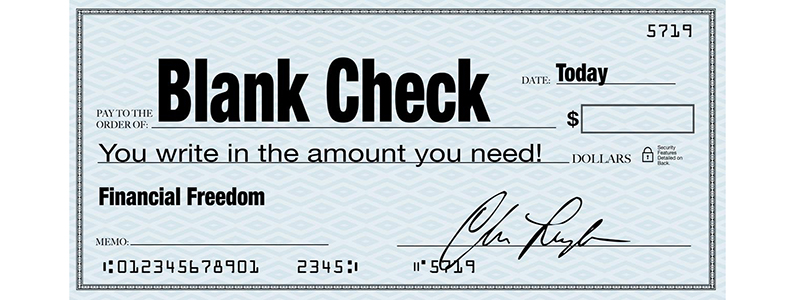Does your spouse have secret debt?
Most people don’t want to believe that their spouse keeps secrets from them… especially financial secrets. But unfortunately financial infidelity is common in relationships. If you suspect your spouse is hiding secret debts from you, ask yourself the following questions:
- Is your spouse buying things that don’t fit with your lifestyle?
- Do the numbers in your cash-flow make sense? For example, given your salary, does your spouse buy food that is too expensive (think: fillet mignon every night)? Does your spouse indulge in lots of luxury items, like the newest cellphone model or yet another pair of shoes?
- When your spouse returns from shopping, does he or she often come back with many bags and evade questions? This may be an indicator that s/he is hiding debt from you.
Why hiding debt from your spouse is easy
It’s easy to accumulate credit card debt.
Indeed, credit card companies like people who don’t pay off their full bill every month, since they make a profit from the interest charges. This is one reason why the credit card companies extend credit to customers. (In fact, these companies get more money from the customers who pay a monthly minimum and accrue high interest rates than from those clients who pay the bill in full each time.)
Four calls to action if you suspect your spouse is hiding debt from you:
- Order credit reports from each one of the major credit agencies.
To learn more about this process, click here.
- Tell your spouse you want to use cash instead of credit cards.
If there is disagreement from your spouse, this may indicate some sort of credit card addiction.
- Use reverse psychology
Say something like, “I am frustrated because I don’t buy the things I want as I always feel broke.” Then ask, “How do you deal with those feelings?” See how your spouse responds.
- Talk with your financial planner.
Your financial planner will ask you about your cash flow, income, expenses, and savings. Often when you start talking about these matters, hidden issues, such as expenditures that weren’t accounted for, suddenly surface. Talking about money issues that you didn’t discuss with your spouse beforehand could be awkward for both sides. The financial planner, as an objective third party in the room, can help discuss these things in a professional way. He will try to minimize any embarrassment and blame that could arise during this potentially difficult conversation.
Clear communication respects privacy
While clear communication is important, everyone needs some privacy. It’s not reasonable to expect your spouse to report on every coffee bought, lunch eaten out, or new outfit purchased. Consider setting “free spending limits” with your spouse, so you are both on equal ground with discretionary spending.
Prevent financial infidelity
Good communication is a key to avoiding many problems. Make sure you communicate with your spouse on a regular basis and that the communication is comfortable enough to talk about any issue, especially your financial situation. Try to solve the little money issues first before they turn into big money problems.
For more about financial communication in marriage, listen to this interview with Dorian Mintzer, co-author of The Couple’s Retirement Puzzle and Live Smart After 50!, about the necessity for financial communication between couples.
Douglas Goldstein, co-author of Rich As A King: How the Wisdom of Chess Can Make You A Grandmaster of Investing, is an avid chess player, international investment advisor, and Certified Financial Planner (CFP®).




